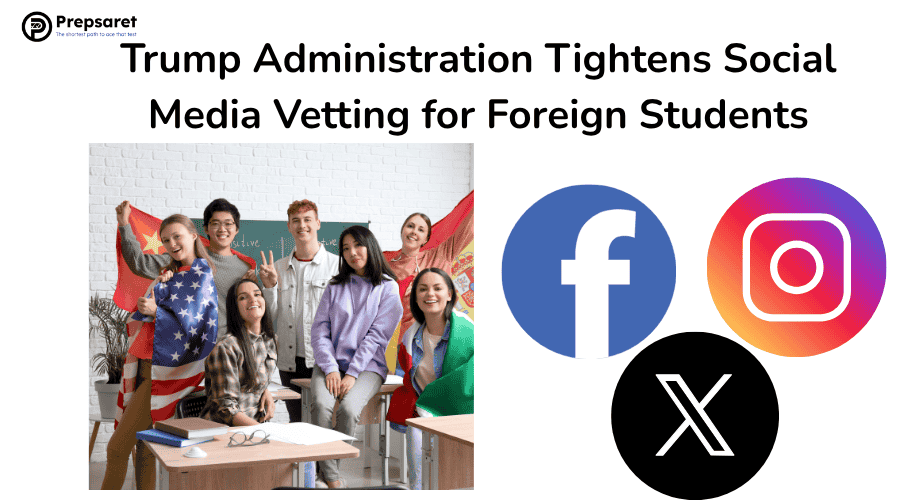Key Points:
- The U.S. State Department has resumed processing student visas, but now requires applicants to make their social media profiles public for government review.
- The Trump administration aims to identify applicants who may hold hostile views towards the U.S. government, culture, and institutions.
- Critics argue that the new policy is a form of ideological vetting that could violate privacy rights and target individuals based on their political views.
In a significant shift in U.S. immigration policy, the Trump administration has reinstated student visa processing but now requires foreign applicants to make their social media accounts public for government scrutiny. This move, announced by the U.S. State Department on June 18, is part of a broader effort to enhance the vetting process for foreign nationals seeking to study in the United States.
The new directive mandates that all student and exchange visitor visa applicants grant consular officers access to their social media profiles. U.S. officials argue that this enhanced screening will help identify individuals who may harbor hostile attitudes towards the U.S., its citizens, government, or institutions.
Failure to comply with this requirement by making social media accounts accessible could result in visa denials, as it may be seen as an attempt to conceal potentially harmful online activities.
Social Media Vetting: A New Requirement
The decision to impose stricter social media vetting comes after a temporary pause in student visa appointments in May. During this suspension, the State Department prepared to expand its social media screening efforts.
Now, as student visa processing resumes, applicants must make their social media accounts public, including posts, messages, and profiles, to facilitate thorough vetting.
This policy is part of an ongoing effort by the Trump administration to ensure national security, according to officials. Consular officers will now be tasked with conducting a “comprehensive and thorough vetting” of all applicants to detect any potential security risks.
The government’s stated goal is to prevent individuals with hostile views from entering the country under the guise of academic or cultural exchange.
The International Impact and Reactions
The resumption of student visa appointments, along with the new social media screening requirements, has left many international students anxious about their chances of securing a visa.
Students from countries like China, India, and Mexico have expressed concern over the new regulations, fearing that their social media activity could be scrutinized for political views. Many students have taken to social media platforms to share their experiences and anxiously monitor the status of their visa applications.
For students like 27-year-old Ph.D. candidate Chen from Toronto, this new policy adds uncertainty to an already stressful process. “I’ve been refreshing the visa appointment page every day,” Chen shared, relieved to secure an appointment for a visa interview.
However, the requirement to make social media accounts public raises further concerns for many who feel that their online presence could be used against them.
While the policy is being implemented with the stated goal of improving national security, it remains to be seen how it will affect the U.S.’s standing as a global destination for international students. Universities and educational institutions may also need to navigate the implications of this new vetting procedure as they continue to welcome students from around the world.

